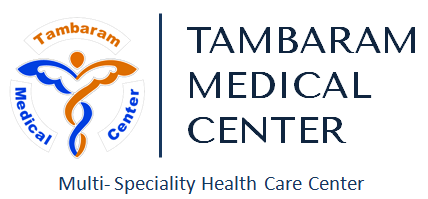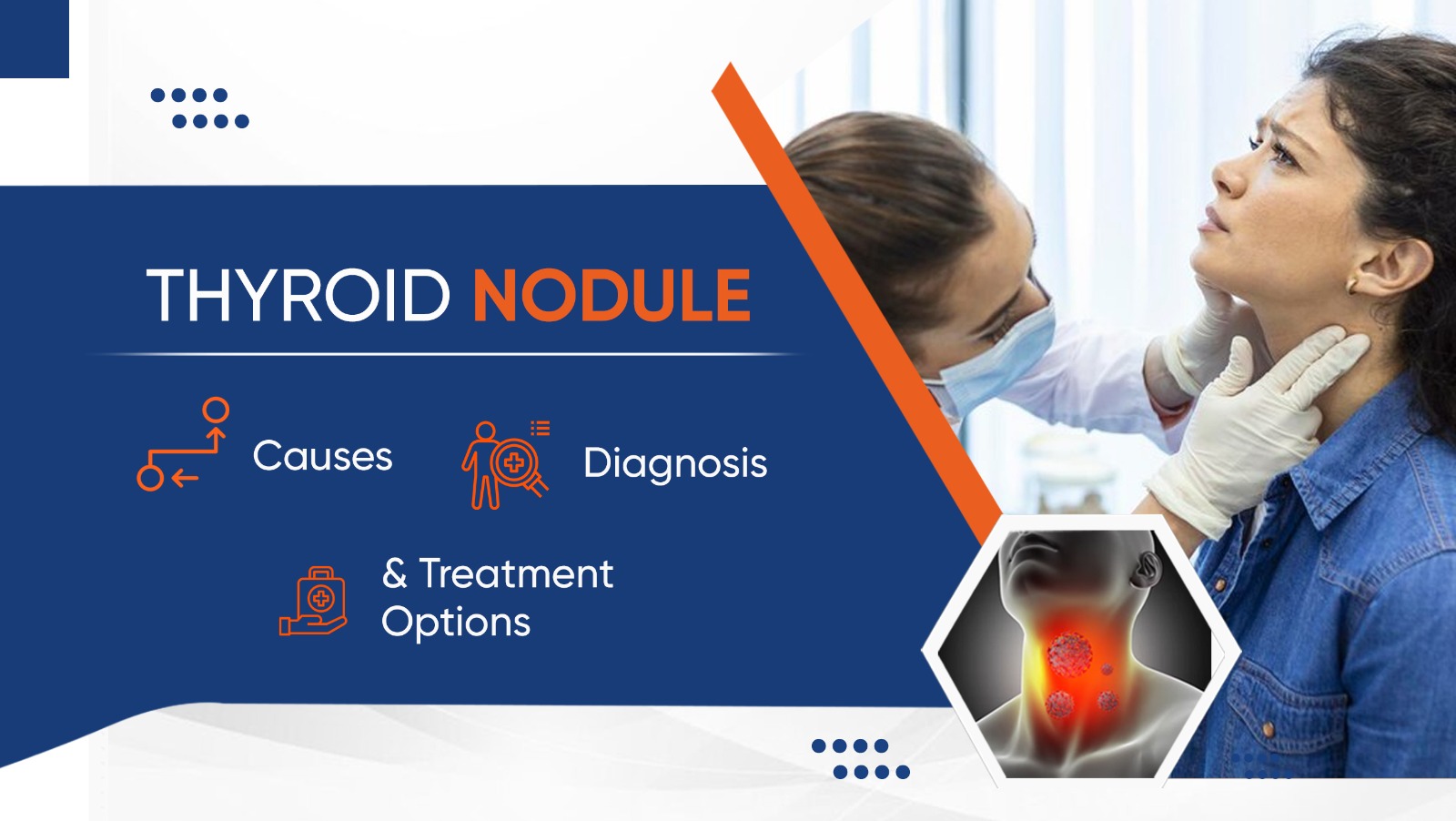Table of Contents
What are thyroid nodules?
Thyroid nodules are a type of nodule found in the thyroid gland. The thyroid gland is found at the base of the neck. Thyroid nodules are lumps or overgrowths in the thyroid gland that are rare. These may be fluid-filled or solid, and the majority do not cause serious symptoms. Just a tiny proportion of these nodules grow into cancerous tumors, which should be treated right away.
Thyroid nodules are usually discovered during a regular scan or evaluation by the doctor. However, some thyroid nodules grow large and make swallowing and breathing difficult.
What are the signs of thyroid nodules?
Most thyroid nodules show no symptoms; however, some nodules may cause
following symptoms:
1. It can be felt and seen.
2.Difficulty breathing
3. Make it hard to swallow.
Furthermore, certain thyroid nodules may produce the excess hormone thyroxine, resulting in
in other signs, such as:
1. Loss of weight
2. Anxiety
3.Arrhythmia
4.Perspiration
5.Trembling
When should I consult the doctor?
If you have trouble swallowing or breathing, the doctor will check your neck for swelling. If you notice sudden, unexpected weight loss, an increased pulse, trouble sleeping, muscle weakening, or nervousness, you should see a doctor right away. If you’re feeling really cold, If you have dry skin, or are having trouble remembering things, you should see a doctor. These symptoms typically mean that the thyroid gland is not producing enough thyroid
hormone.
Thyroid nodules can be caused by a variety of factors. Any of these factors include:
Thyroid tissue overgrowth: Thyroid tissue overgrowth, also known as adenoma, is one of the causes. Adenomas aren’t necessarily cancerous and are considered serious until they cause extreme symptoms.
Cysts: Degenerating thyroid adenomas produce fluid-filled cysts or adhesions in the thyroid gland. Furthermore, both the solid and liquid components are included. While the majority of these are non-cancerous, a few of them do contain cancerous elements.
Hashimoto’s disease is a thyroid disorder that causes swelling of the thyroid gland and enlargement of nodules. It’s also linked to hypothyroidism.
Thyroid cancer: A big, hard nodule that induces pain and discomfort should be seen by a doctor right away. These nodules are almost always cancerous and must be handled right away.
Goiter: While a goiter is often referred to as an enlarged thyroid, a multinodular goiter is made up of several nodules. The origin of goiters like these is unclear.
Iodine deficiency: Iodine deficiency can cause thyroid nodules in some people.
Thyroid nodules are diagnosed in a variety of ways.
Your doctor will conduct the necessary tests and examinations to confirm the diagnosis.
Physical examination: The doctor will test your thyroid gland and evaluate your swallowing and breathing. He’d also look for other hypothyroidisms or hyperthyroidisms signs.
Thyroid function tests show if you have hypothyroidism or hyperthyroidism.
A thyroid scan may be recommended by your doctor to help determine the thyroid nodules. It is accomplished by injecting a radioactive isotope of iodine into a vein in the arm.
Ultrasound: A high-frequency sound is used to create a picture of the thyroid gland. with this technique. It gives the doctor details about the thyroid nodules and aids in the treatment decision.
Fine needle aspiration biopsy: Your physician will take a small sample of your skin with very thin needles to check for cancerous growth. This aids in determining whether or not the thyroid nodule is cancerous.
What are the different treatment options for thyroid nodules?
The type of thyroid nodules you have will determine your treatment plan.
Harmless Nodules: If the nodules on your thyroid aren’t cancerous, your doctor will tell you to do the following:
Monitoring: If your nodules and biopsy findings show that they are not cancerous, your doctor will simply ask you to keep an eye on them and inform him or her if they grow larger. Depending on your progress, this will determine whether you will need surgical resection in the future.
Thyroid hormone therapy: If your thyroid function tests reveal that it isn’t creating sufficient hormones, your doctor can prescribe thyroid hormone therapy.
Surgical procedures: Thyroid nodules that aren’t cancerous can need surgery if they make it hard to breathe or swallow. Surgical removal of thyroid nodules is accompanied by care and rehabilitation.
Hyperthyroidism is a condition that affects the thyroid gland.
If your thyroid is overproducing hormones, your doctor can suggest one of the following treatments:
Radioactive iodine is swallowed as a liquid or a tablet in this procedure. Within a few months, the radioactive iodine causes the nodules to reduce and the signs to go away.
Anti-thyroid medications: To treat hyperthyroidism, your doctor can prescribe anti-thyroid medications. This is usually recommended for a long period of time.
Surgery: If radioactive iodine and anti-thyroid drugs don’t work, your doctor can suggest surgical resection of the organ.
Thyroid nodules that are cancerous
Surgery is normally used to treat cancerous thyroid nodules.
Observation: Since very tiny cancers develop slowly and also have a low chance of becoming big, your doctor can advise you to monitor your thyroid for irregular growth on a regular basis.
Thyroid surgery: Your doctor can conduct a partial or full thyroidectomy. You’d still need to take thyroid hormone replacement therapy for the rest of your life.
Alcohol ablation is a procedure that involves injecting small quantities of alcohol into the nodule to reduce it. This procedure necessitates several sessions.
Final thoughts
Thyroid nodules are mostly benign. These may become more concerning if they interfere with breathing and swallowing. Unidentified growths, cysts, and a lack of iodine are the main causes of thyroid nodules. You should always be on the lookout for any unexpected changes in your thyroid and seek care from your doctor as soon as possible.










